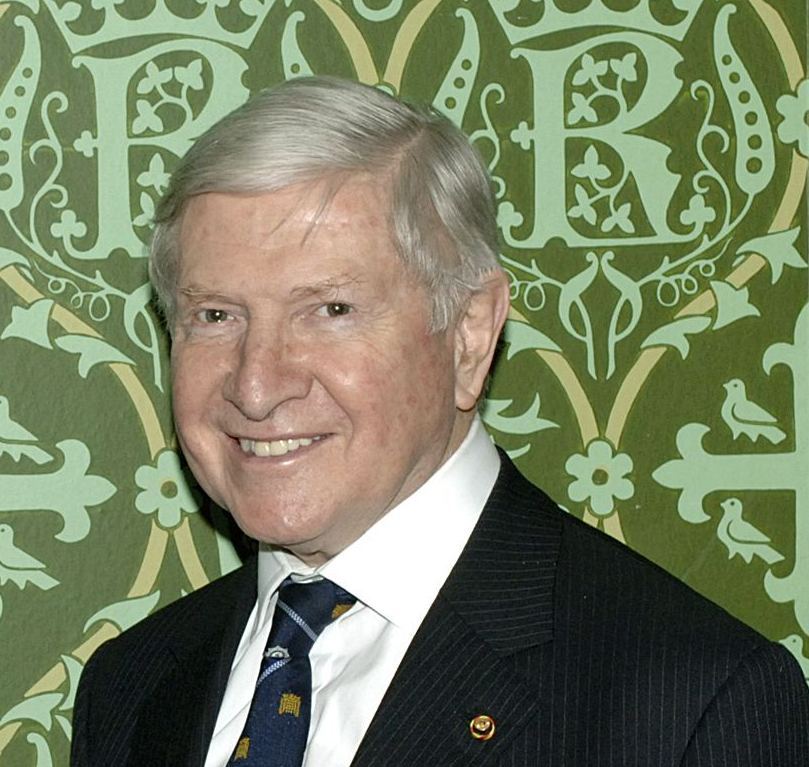Parli army: Sir Neil Thorne reflects on the Armed Forces Parliamentary Scheme
Shrivenham 2011 Sir Neil (centre) at the scheme’s academy with MP participants
4 min read
A scheme allowing MPs to experience life in the forces has been running for 34 years. As Parliament marks Remembrance Day, Sophie Church hears from founder, Sir Neil Thorne
Colonel Sir Neil Thorne, founder of the Armed Forces Parliamentary Scheme, has had a long and varied career. A chartered surveyor by trade, he served in the territorial army, reaching the rank of lieutenant colonel. A love of politics led to his election to Redbridge Council in 1964, then the Greater London Council representing the Conservative Party. He became MP for Ilford South in 1972, a position he held for 13 years. “I never sit down and just let things happen to me. I always want to get involved,” he says.
His current role, however, is perhaps the one he is most proud of. In 1988, Sir Neil founded the Armed Forces Parliamentary Scheme, and has been running it ever since. The scheme offers MPs and peers the chance to take part in military operations with either the army, Royal Navy, the marines or the RAF, to understand better how the forces operate. By putting on uniform, MPs become, in Sir Neil’s words, “just another soldier”, and can fully immerse in military life. “My aim was to educate MPs in how the armed forces work, so they could return to the debate chamber and speak from experience. The more people know what they are talking about, the more valuable debates are in the chamber – regardless of the subject,” he says.
 Sir Neil Thorne
Sir Neil Thorne
The longevity of the scheme is evidence of the value it has brought to MPs over the years. But in 1988, support for Sir Neil’s idea was lacking. “Roger Freeman was parliamentary under-secretary of state for the armed forces at the time. When I approached him, he said, ‘Come and see me after the next election.’ I think he hoped I would lose my seat and stop bothering him. But after the next election, I went back to him again. So, he set up some ground rules: every Member of Parliament must always do their attachment in their own constituency, and the scheme must cost the taxpayer nothing.”
The Royal Navy took fright when a Labour MP swallowed his tongue on exercise in Belize
Sourcing funding for the programme was a challenge. “I went to the chairman of the Plessey company [electronics firm], which was founded in my constituency, to ask for sponsorship. Eventually, Plessey, BAE and Vickers gave me £1,500 each. My secretary on the scheme was costing me £15,000, so I had to take a deduction from my parliamentary pay to get it started.”
Sir Neil has also had to take responsibility when accidents have happened to MPs. “The Royal Navy took fright when a Labour MP swallowed his tongue on exercise in Belize. They demanded that every MP going on the scheme should have a medical examination. I knew I was going to have to pay the doctors. But because I was known as a fighter, they decided to find the funding elsewhere.”
A turning point came in 1997, when Sir Neil received a phone call from George (now Lord) Robertson, the new secretary of state for defence. “At that time, I was only allowed to have eight MPs across each of the four services at a time. George said he would increase the number to 25.” With renewed government support, Sir Neil returned to his sponsors, who each gave him a cheque for £30,000. “Why could they not have been giving me that money before?” he laughs.
Sir Neil celebrated his 90th birthday this year, and is naturally looking for a successor to run the scheme. While James Gray MP is the chairman of the trust overseeing the running of the scheme, recruitment is proving tricky to replace the life president Sir Neil. “I need someone who can cope when things go wrong. I may have to run it for another three years yet, but at least I still have a brain that works!”
